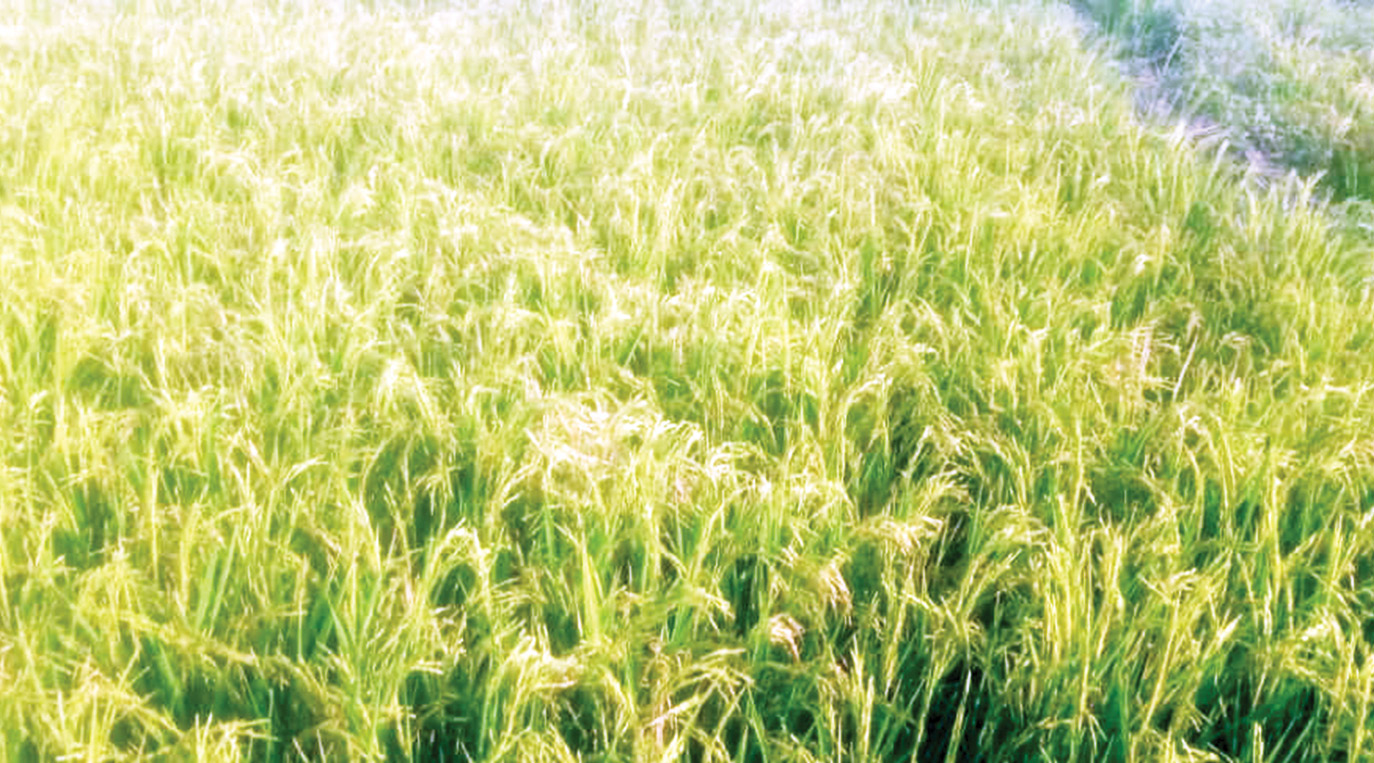Niger farmers adopt early rice planting to escape from flood disaster
Rice Farmers in Edozhigi, Gbako LGA of Niger State, said they have adopted early planting of rice this rainy season as a proactive measure to escape from the annual flood disaster they’ve been experiencing lately. Edozhigi – one of the major rice farming communities in Niger State, suffered severe loss of rice and sugarcane farms […]

A rice farm in Taraba State
Rice Farmers in Edozhigi, Gbako LGA of Niger State, said they have adopted early planting of rice this rainy season as a proactive measure to escape from the annual flood disaster they’ve been experiencing lately.
Edozhigi – one of the major rice farming communities in Niger State, suffered severe loss of rice and sugarcane farms in 2022 when a flood washed away most of their rice farms which were due for harvesting.
One of the farmers, Tauheed Dwale, told Daily Trust on Sunday that they have also changed the variety of seeds they used to plant to those that will be ready for harvesting within 3 months of planting.
“This year, the proactive measure we have taken is early planting to avert what happened to us last rainy season. Last year, we lost our rice farms which were due for harvesting. And apart from early planting, we have changed from the type of rice that we used to plant. The one we plant this year will be due for harvesting within three months. Even though we don’t know when flood disaster may occur, but with early planting and new variety of rice seed, the loss would be minimal,” he said.
- More Kano poultry farmers consider shutting down over feed, maize prices
- I’m art and art is me – Zainab
He, however, noted that some people were not able to engage in early planting due to financial constraints to procure inputs in time.
Dwale said they were faced with the challenges of high cost of fertilizers this rainy season.
The Village Head of Edozhigi, Alhaji Usman Abubakar, told Daily Trust on Sunday that “our major occupation is farming. We need so many things especially fertilizer. We want government to help us with subsidized farm inputs to help boost our farming activities.”
Another farmer in Mokwa Local Government, Abdullahi Isah, said the inputs they were usually given as loans by microfinance banks and other non-governmental organizations usually come with high interest rate which they found difficult to pay.
